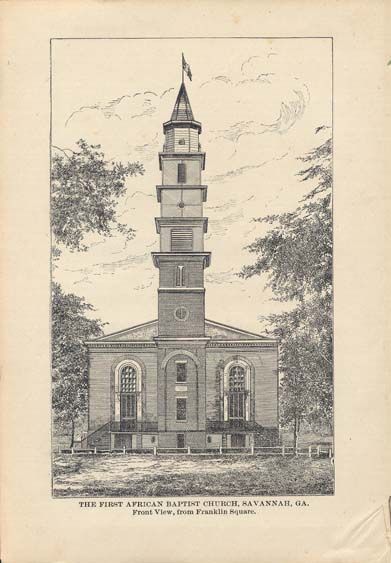 In the Deep South town of Savannah, Georgia, blacks — enslaved and free — increasingly seek autonomy as the war rages on. Not allowed to gather except for religious purposes, some turn to the Masons, creating the Eureka Lodge.
In the Deep South town of Savannah, Georgia, blacks — enslaved and free — increasingly seek autonomy as the war rages on. Not allowed to gather except for religious purposes, some turn to the Masons, creating the Eureka Lodge.
Eureka Lodge has the proud distinction of being the first Black secret organization to be formed in Georgia, a distinction that we should proudly wear, and for which we are indeed very thankful. In Savannah, there were a number of brethren of a receptive mind who craved the light of Masonry, even thought the smell of gun powder and the echoing of cannons of the civil war for freedom were yet in the air, and the great struggle of the North and the South was ongoing. The formation of a Masonic Lodge was on the minds of several brethren for many years. Several of those brethren were free men and under the usage of Masonry and were qualified to receive the secrets of the order. At that time colored men were not allowed to have any gatherings what so ever except for religious purposes. Immediately after President Lincoln issued the Emancipation Proclamation the brethren who were interested in the formation of a Lodge started to hold meetings. These meetings were held at the home of brother Stephen Johnson, who resided on Pine Street in a house that adjoined West Broad Street School.
Among Savannah’s black citizens who form the Eureka Lodge No. 1 after the first of the year are several prominent African Baptists, including Charles L. DeLamotta (1822-1886), who today is elected as a deacon of the city’s First African Baptist Church. Tracing its roots to 1773, the church was begun by George Leile, the first African American Baptist-licensed preacher in Georgia. Before the American Revolution, Leile, freed by his master (a Baptist deacon), preached to, and baptized and converted, many slaves on plantations along the coast of Georgia and South Carolina. After the war, the church was officially organized in 1788.
In addition to serving as a deacon, DeLamotta holds the position of Sunday School superintendent at First African Baptist Church for many years, and following the war becomes a leader among African Baptists on a national level. As a Mason, DeLamotta serves as the Second Senior Warden in the Lodge he helped found. He also serves as Worshipful Master in1867 and again in1870, as well as treasurer in 1874.
DeLamotta’s experience as a Baptist and Mason is not uncommon. Many Baptist ministers and layman — both South and North, black and white — in the middle and late nineteenth century are Masons. Only many years later does membership in a masonic lodge become (in the eyes of many Baptists) a stigma, rather than an accepted practice, for prominent Baptists.
Sources: “History of Most Worshipful Prince Hall Grand Lodge by way of ‘The Mother Lodge Eureka No.1′” (link); First African Baptist Church, Savannah, Georgia (link); E. K. Love, History of the First African Baptist Church From Its Organization, January 20th, 1788, to July 1st, 1888, Savannah: Morning News Print, 1888 (link); see also, LeRoy Fitts, A History of Black Baptists, Nashville: Broadman & Holman Academic, 1985 (link)


